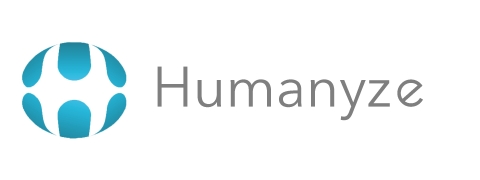New Humanyze Report Finds 42% of Employees Still Likely to Quit
New Humanyze Report Finds 42% of Employees Still Likely to Quit
As the Great Resignation continues and many shift to hybrid/remote work, Humanyze’s Spring 2022 Employee Retention Report offers a closer look at the drivers of employee retention.
BOSTON--(BUSINESS WIRE)--Humanyze, a global workplace analytics provider, today released its Spring Employee Retention Report, which sheds light on what leads to employee turnover. The report includes results from a March survey of thousands of US employees and managers, and never-before-seen findings from a behavioral data analysis on the drivers of retention.
The Current State of Employee Retention
The survey found 42% of employees are likely to leave their job in the next 3-6 months. As the Great Resignation continues and turnover costs of up to 2X an employee's salary, leaders must get to the bottom of what drives engagement, productivity, and success. In addition to just under half of employees at risk of quitting, 52% of management expects higher attrition rates in coming months.
When asked what influences their decision to stay at a job besides salary or benefits, both groups cited flexibility and hybrid/remote work options as top priorities. Employees also consider access to their direct manager (27.9%), team/department colleagues (24.6%), and company leaders/mentorship (23%) important factors in the decision.
Along with the motivators behind employee turnover, the survey also asked about the pandemic’s impacts on work. Employees likely to quit cited “work-life balance,” “time spent in meetings,” and the “ability to focus on/do their own work” have been negatively impacted during COVID-19. Almost 20% of this subset also cited that their company has not introduced measures to improve retention over the last year, raising concerns that some companies aren’t adapting to workforce needs.
“Flexibility and remote work are understandably top of mind right now,” said Ben Waber, Humanyze’s President and Co-founder. “However, it’s critical to educate organizations and leaders about how collaboration impacts an employee’s experience and, ultimately, their desire to stay or leave. To thrive in this new era of work, managers need tools that help them inform decisions with their team’s best interest and performance in mind, while giving them the flexibility they desire.”
The Hidden Drivers of Retention
Humanyze’s behavioral analysis underscores the survey findings, confirming that how employees collaborate is predictive of turnover. The analysis revealed two primary collaboration styles, “open-door” and “closed-door.” “Open-door” teams communicate frequently and fluidly with colleagues of any hierarchy. “Closed-door” teams are siloed and interact mostly with the same groups, often disconnected from the broader company culture or initiatives. The data revealed workers on “open-door” teams are significantly more likely to stay at their jobs.
However, over 40% of employees surveyed cited not being able to easily interact with leaders across the company. Management surveyed also noted that the more levels of separation between colleagues, the less they can interact without facilitation.
“Of course salary and flexibility will remain important to workers, but our analysis shows why employee interactions must be a top priority for leaders,” said Taemie Kim, Humanyze’s Co-founder and Chief Scientist. “There’s a clear connection between retention and a company or team’s collaboration culture. This is much harder to manage without physical proximity, so hybrid/remote organizations must be even more intentional about encouraging these connections.”
While interactions with colleagues matter to employees, only 16.27% said their company has offered more opportunities to connect with colleagues, crucial for innovation and a sense of belonging. For managers who said increased attrition is “very likely” in the coming months, only 27% said these opportunities have been offered.
"This trend is concerning if it continues. Companies who want to innovate and retain top talent post-pandemic, especially in hybrid or remote settings, can’t rely on the same old strategies,” said Waber.
“As companies determine their post-pandemic future, HR and management have to be more data-driven and employee-centric than ever before,” said Waber. “When used ethically and holistically, data equips leaders with powerful insights into what workers need to succeed. With hybrid and remote work creating less reliance on physical proximity than ever before, companies must use hard data to set their workforce up for success.”
Behind the Survey & Study
Last month, Humanyze surveyed 2,000 full-time US employees and managers. It compared survey results against anonymous collaboration data from The Humanyze Platform, which has measured over 1 million workplace interactions since the start of COVID-19, and over 20 billion workplace interactions in the last decade.
Data from Humanyze’s data analysis measured a subset of anonymous data from multiple clients for over 27,000 full-time employees, 858 teams (of up to 500 people), and 3,000 locations.
For more details, register for Humanyze’s webinar on April 21st, or download the full report here.
About Humanyze
Humanyze is a global workplace analytics provider, delivering science-backed insights for companies to inform and improve organizational health and workplace strategy decisions. Founded in 2011 at MIT’s Media Lab, our award-winning, patented AI platform uses proprietary indicators and metrics that measure how work gets done to help leaders address today’s pressing business challenges. Humanyze is committed to protecting employee data privacy and ensures 100% anonymity by design. Our mission is to create a data-driven, people-centric Future of Work, and we have a global presence spanning the US, Europe, and Asia.
Contacts
Brittany Gould
Matter Communications for Humanyze
humanyze@matternow.com
